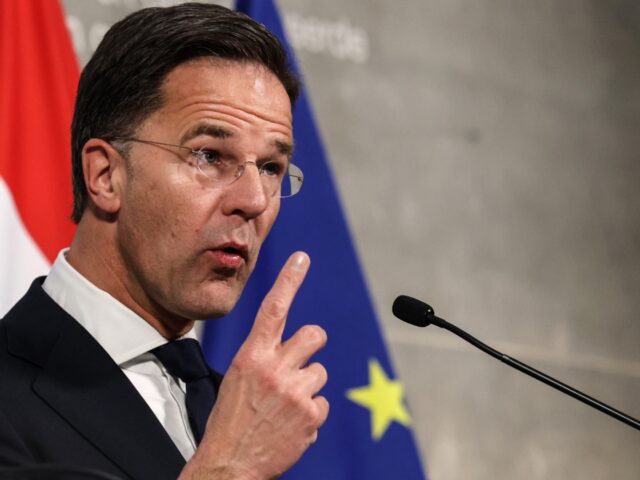Globalist Dutch Prime Minister Mark Rutte has vowed to “accelerate” his government’s plans to implement its anti-farmer agenda on nitrogen emissions that could see thousands of farms shut down despite the surprise victory of the populist tractor protest party in last month’s provincial elections.
During a parliamentary debate concerning the local and senatorial elections in March in which the upstart Farmer–Citizen Movement (BBB) party became the single largest party in the Dutch Senate — after previously holding zero seats — Prime Minister Rutte doubled down on his government’s EU-driven green agenda that would force farmers to cut their nitrogen emmission by at least 50 per cent by the end of the decade or face the prospect of being shut down.
While Rutte’s four-party coalition fell from 32 to 22 seats in the senate, as the BBB picked up 17 on their own as a result of widespread resentment at the attacks on the nation’s vital farming community, Rutte appears to be intent on pushing forward the policies preferred by Brussels over those favoured by his own citizens.
During the debate, the globalist prime minister said that he intends to “accelerate” the plans to cut nitrogen emissions. However, it is currently unclear if the government will stick to the same exact policy, with the coalition agreeing to negotiate with the agricultural sector and provincial local governments, many of which will now be controlled by the pro-farmer BBB party.
In response, BBB leader Caroline van der Plas said: “This is exactly one of those things that is completely wrong in this cabinet. The lack of empathy, the disdain, the arrogance. And I’m experiencing that again now and I think that’s a great pity.”
Yet, as the governing majority for Rutte’s coalition is so slim, it is currently not in a position to be able to prevent an opposition party from tabling a motion of no confidence, which would collapse the government and force elections. The outspoken leader of the BBB warned last month that she did not believe the coalition is stable and predicted that there would be elections sometime this year, which could see Rutte’s tenure as prime minister, the longest of any democratic leader of the nation, come to an end.
Rutte is in between a rock and hard place though, given that the European Commission has demanded that his government press on with nitrogen curbs. Just last week, a letter from Environment Commissioner Virginijus Sinkevicius in Brussels was sent to the Hague ordering the country to comply with the EU’s Natura 2000 programme designed to protect supposedly environmentally at-risk areas — the vast majority of which happen to be located surrounding farmland.
The EU has previously threatened to impose sanctions on the Netherlands if it fails to cut nitrogen emissions in the regions by 2030, such as introducing restrictions on new construction or roads.
The plans to impose Brussel’s green agenda on the Dutch farming sector sparked widespread tractor protests across the country last year, with thousands of farmers clogging up highways and staging blockades of critical infrastructure. A main point of contention for the farmers was that Rutte’s government admitted that those farms that fail to comply with emissions standards could be forcibly bought out by the government, threatening the future of between two and three thousand farms.
Even those farms that survive such a culling would still face severe hardships given the requirement to cut their emissions of nitrogen, a key fertiliser for many farmers, by between 50 and 95 per cent by the year 2030, with many farmers arguing that the heavy costs of doing so would see their businesses fail, regardless.
Follow Kurt Zindulka on Twitter here @KurtZindulka

COMMENTS
Please let us know if you're having issues with commenting.